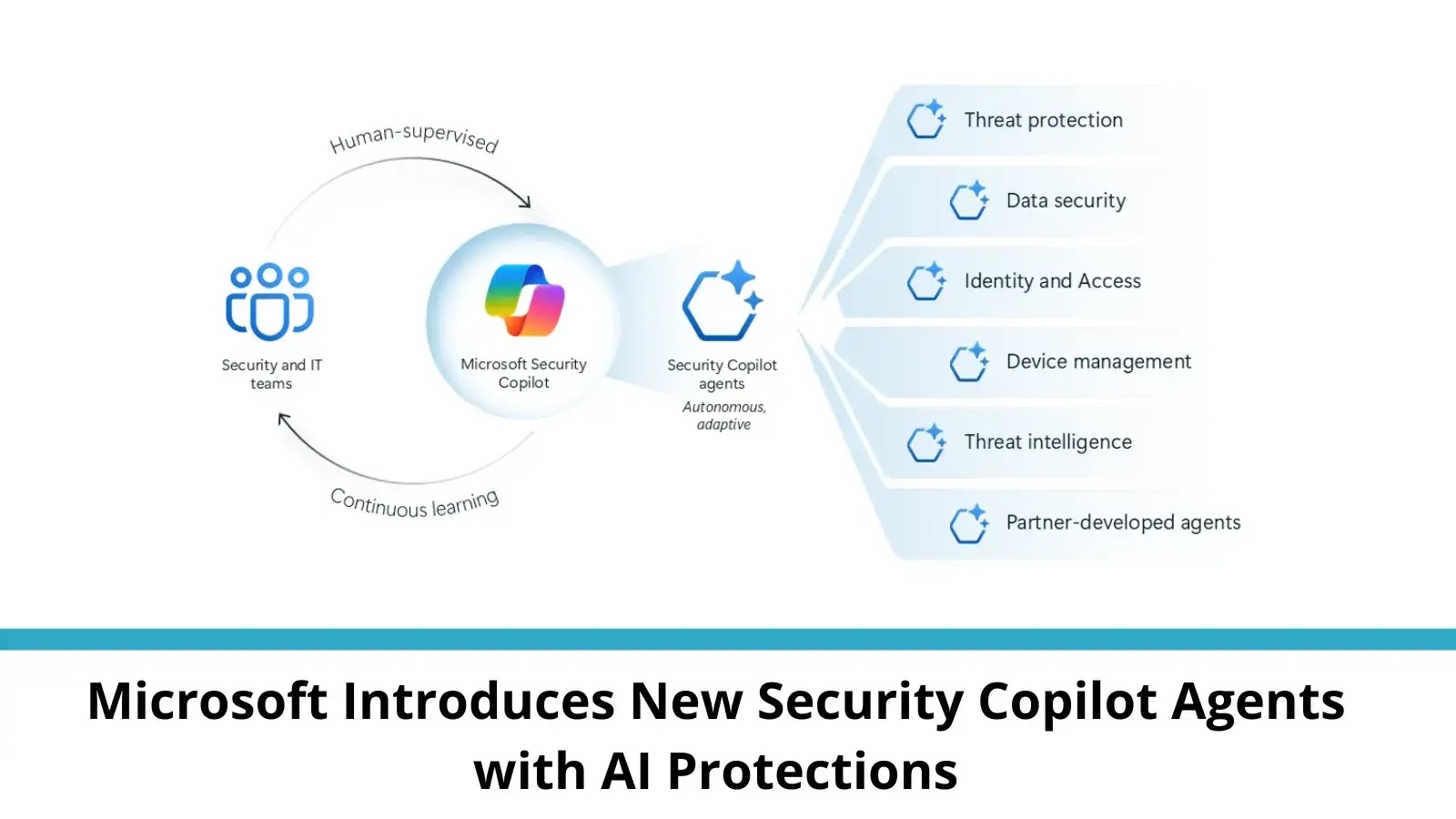Microsoft Unveils Enhanced AI Protections with New Security Copilot Agents

Microsoft Security Copilot: Advanced AI Agents Revolutionizing Cybersecurity
Microsoft has recently enhanced its Security Copilot platform by integrating advanced AI capabilities. This expanded version introduces intelligent agents that autonomously manage essential security tasks, such as detecting phishing attempts, safeguarding data, and handling identity management. This innovation marks a significant shift in how organizations can defend themselves against the increasing number of cyberattacks.
The Growing Need for Automation in Cybersecurity
The cyber threat landscape is constantly evolving, with attacks becoming more sophisticated and numerous. In 2024 alone, Microsoft identified over 30 billion phishing emails aimed at its customers. This staggering number highlights the urgency for automated solutions to combat the overwhelming volume of threats. Cybersecurity teams often struggle to respond quickly and allocate resources efficiently due to the sheer scale of these challenges.
Key Features of Microsoft’s Security Copilot Agents
To address the rising threat levels, Microsoft has introduced six new AI agents in the Security Copilot platform, complemented by five additional agents developed in partnership with other companies. These agents are designed to learn from user feedback and adapt to different workflows, functioning securely within Microsoft’s Zero Trust framework. Here’s a look at the core agents included in the Security Copilot:
1. Phishing Triage Agent
- Found in Microsoft Defender, this agent evaluates phishing alerts, effectively distinguishing between genuine threats and false positives. The agent also explains its decision-making process and improves its detection capabilities with administrative feedback.
2. Alert Triage Agents
- Operating in Microsoft Purview, these agents focus on data loss prevention and insider threat alerts. They prioritize significant incidents and enhance accuracy through continuous feedback.
3. Conditional Access Optimization Agent
- Part of Microsoft Entra, this agent identifies new users or applications that lack coverage by existing security policies. It recommends necessary updates and simplifies the implementation process.
4. Vulnerability Remediation Agent
- Available within Microsoft Intune, this agent monitors vulnerabilities and prioritizes them based on urgency. It addresses application and policy issues while speeding up Windows OS updates with administrative consent.
5. Threat Intelligence Briefing Agent
- This agent automatically curates relevant threat intelligence tailored to specific organizational attributes and potential cyber threats.
Contributions from Partner Companies
Microsoft has collaborated with several leading security firms to enhance its offerings. Below are the additional AI agents developed in partnership with them:
1. OneTrust Privacy Breach Response Agent
- This agent helps analyze data breaches and offers guidance on meeting regulatory requirements efficiently.
2. Aviatrix Network Supervisor Agent
- Conducts comprehensive root cause analysis for issues related to VPNs, gateways, or connections.
3. BlueVoyant SecOps Tooling Agent
- Evaluates security operations centers (SOCs) to optimize controls and ensure compliance.
4. Tanium Alert Triage Agent
- Provides analysts with enriched context for alerts, enhancing decision-making processes.
5. Fletch Task Optimizer Agent
- Forecasts and prioritizes key cyber threat alerts, aiming to mitigate analyst fatigue.
Safeguarding AI in Cybersecurity
As organizations increasingly implement AI tools, securing these technologies is more crucial than ever. Microsoft is enhancing its AI security posture to encompass various models and cloud platforms such as Google VertexAI and Azure AI Foundry. Starting in May 2025, new detection methods will target emerging AI threats like prompt injection attacks.
Additionally, Microsoft plans to introduce measures to prevent unauthorized access to AI applications and mitigate the risk of sensitive data leaks into unregulated "shadow AI" environments.
By boosting its Security Copilot with intelligent agents, Microsoft not only enhances the defense against sophisticated cyber threats but also strides toward securing AI technologies themselves. This ongoing investment in automation and collaboration continues to showcase Microsoft’s commitment to providing comprehensive security solutions in an ever-changing digital landscape.





